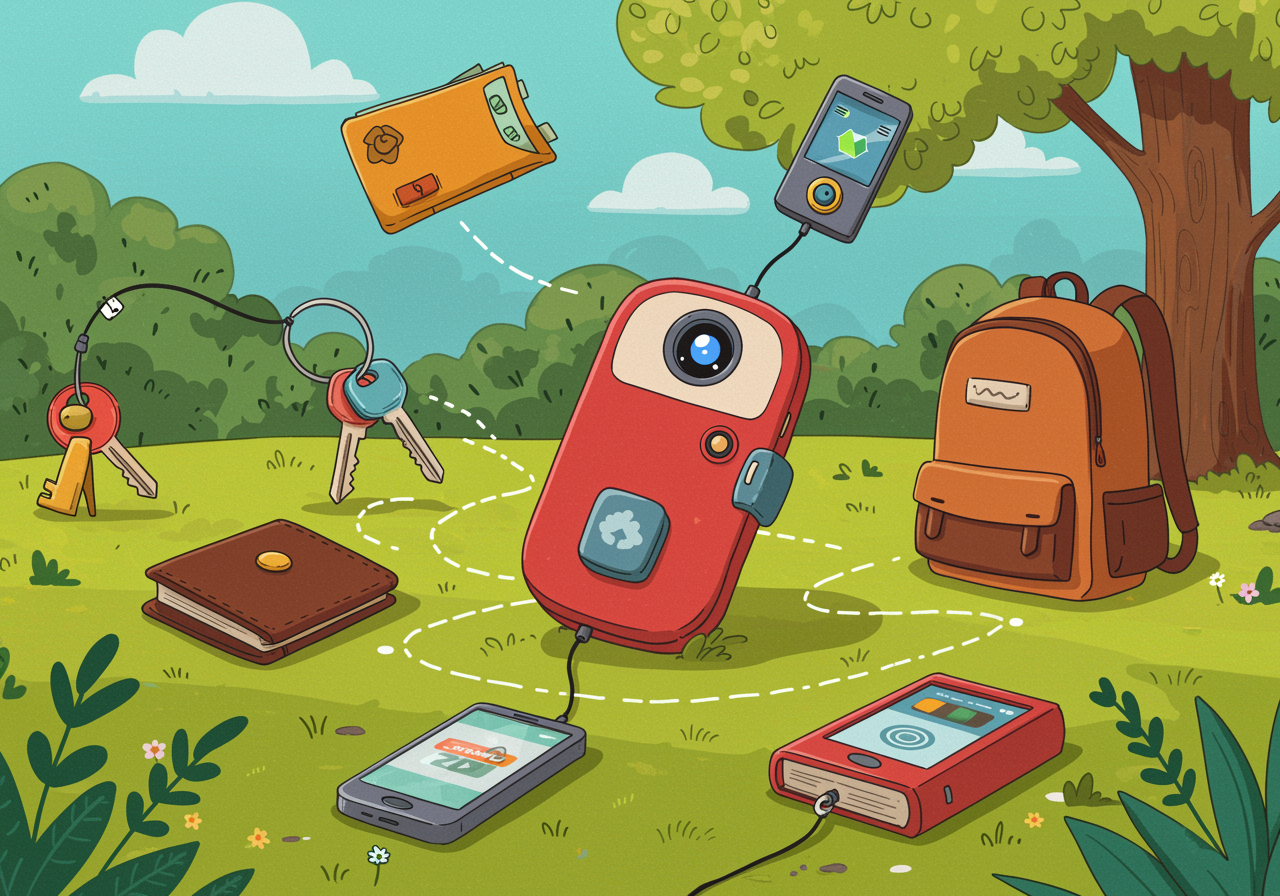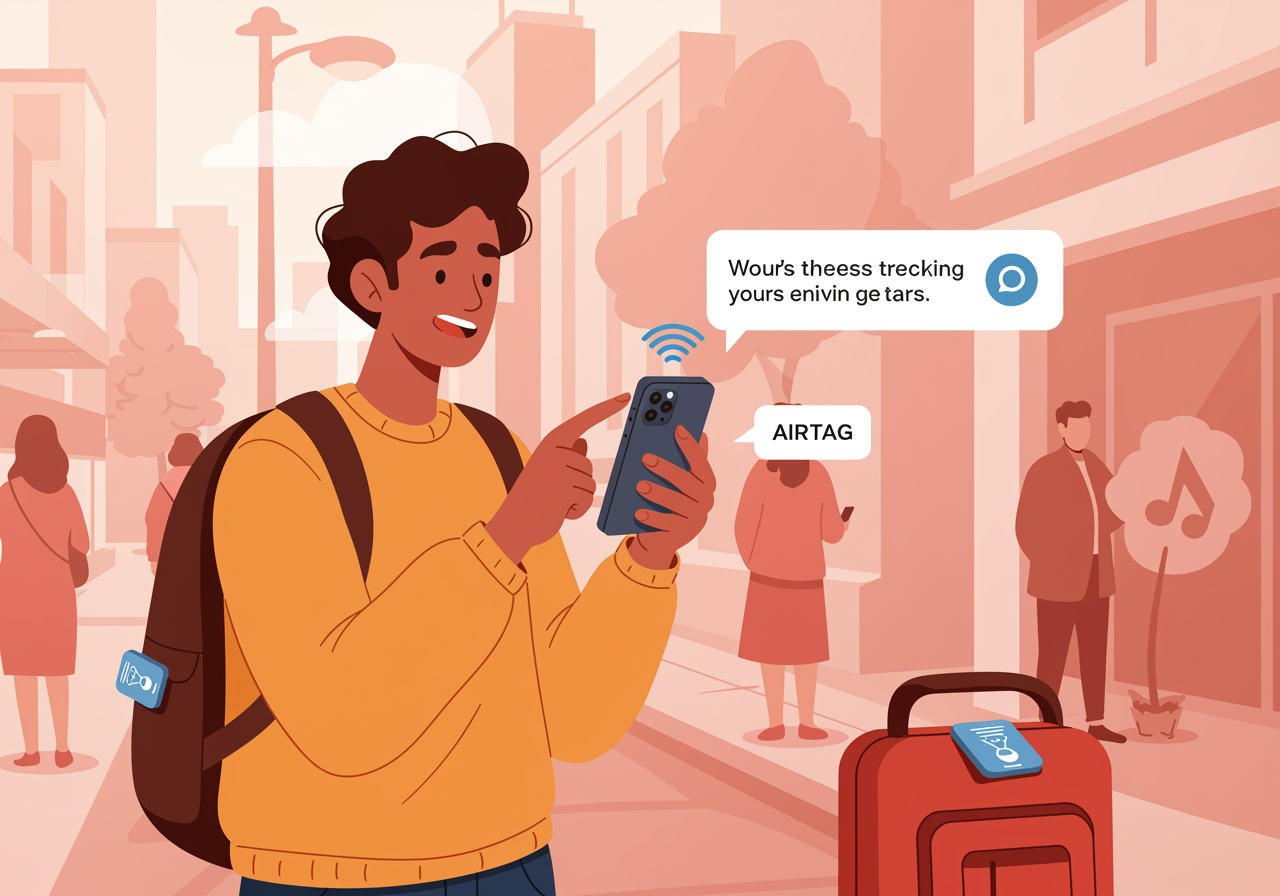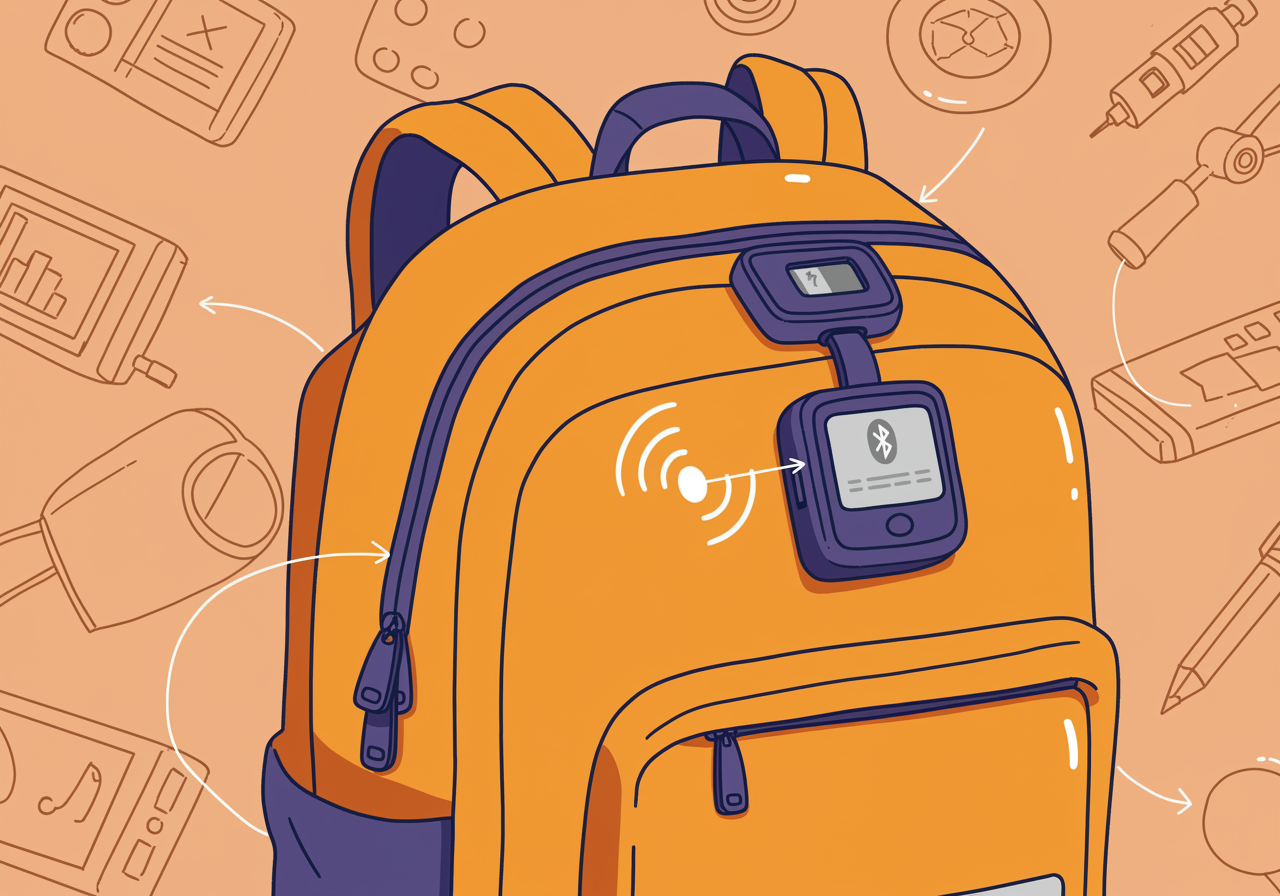The Great AirTag Adventure: When Your Stuff Becomes Smart

Exploring how tiny trackers are changing the way we find our things and think about privacy
Discover how small tracking devices like AirTags are revolutionizing the way we keep track of our belongings while sparking important conversations about digital privacy.
Overview
Imagine if every important thing you owned could call out 'Here I am!' when you lost it. That's basically what AirTags and similar tracking devices do – they're like tiny digital breadcrumbs that help us find our stuff. But here's where it gets interesting: when our belongings become 'smart' and trackable, it changes how we think about ownership, safety, and privacy. This technology raises fascinating questions that are perfect for family discussions about the digital world we're creating together.

Understand in 30 Seconds
Get up to speed quickly
- What Are AirTags?: They're small, coin-sized devices you attach to things like keys or backpacks that use other people's phones to help you find your lost items.
- The Privacy Trade-Off: While they help you find your stuff, they also mean your belongings can potentially be tracked by others, raising questions about when tracking helps versus when it invades privacy.
- The Network Effect: AirTags work by creating a massive, invisible network of phones that can detect your lost items – it's like having millions of helpful strangers looking for your stuff.
- Beyond Finding Keys: This technology is changing how we think about security, trust, and what it means to truly 'own' something in a connected world.
Real Life Scenario
Situations you can relate to
Think about the last time you lost something important – maybe your phone, wallet, or favorite hoodie. That sinking feeling in your stomach, right? Now imagine if that item could send you a message saying exactly where it was. Pretty cool! But here's a twist: what if someone else could also track that same item? Suddenly, your lost backpack becomes a breadcrumb trail showing everywhere you've been. It's like having a superpower that could also be used by someone with not-so-great intentions. This is the fascinating world we're entering with tracking technology – it's incredibly helpful and slightly concerning at the same time.

Role Play
Spark a conversation with “what if” scenarios
What if your backpack could text you its location every hour?
- Role play: Have your child be the 'smart backpack' and you be the owner. The backpack reports where it's been all day, and discuss what information that reveals about the owner's life.
What if you found someone else's AirTag in your bag without knowing how it got there?
- Role play: Act out discovering an unknown tracker and discuss the feelings that would come up – confusion, concern, violation of privacy – and what steps you'd take.
What if you could track your pet, but so could anyone else with the right app?
- Role play: One person plays a worried pet owner, the other plays different characters (helpful neighbor, potential pet thief) to explore both positive and negative uses of tracking.
FAQs
Frequently asked questions people want to know
Are AirTags always listening to me?
No! AirTags don't have microphones or cameras. They just send out a quiet Bluetooth signal that says 'I'm here' to nearby phones.
Can someone track me without me knowing?
Apple built in safety features that alert you if an unknown AirTag is traveling with you, but the technology isn't perfect and concerns remain.
Why would someone want to track my stuff anyway?
Most people use trackers for innocent reasons like finding lost keys, but unfortunately, some might use them inappropriately to track people or steal belongings.
Examples in the Wild
See how this works day to day
- Airlines are testing AirTags in luggage to help passengers track their bags during flights and reduce lost luggage complaints. (CNN Travel Reports 2023)
- Some car dealerships have started using AirTags to keep track of their vehicle inventory on large lots. (Automotive News 2023)
- National Park Service rangers have used tracking devices to study wildlife migration patterns and protect endangered species. (National Geographic 2023)
- Parents are using AirTags in children's backpacks for safety, but schools are creating policies about tracking devices on campus. (Education Week 2023)
In Summary
What you should know before you start
- Tracking technology like AirTags creates a helpful network but also raises important privacy questions
- The same technology that helps us find lost items could potentially be misused to track people
- We're learning to balance the convenience of never losing things with protecting our personal privacy
- These conversations help families think critically about the technology they invite into their lives
Pro-tip for Parents
You got this!
If your teen seems worried about tracking technology, validate their concerns – they're not being paranoid, they're being smart! Use this as an opportunity to discuss digital literacy and personal boundaries. Ask them what rules they think would make tracking technology feel safer, and work together to establish family guidelines about when and how you use these devices.

Keep an Eye Out For
Find these examples in everyday life
- News stories about tracking technology being used in unexpected ways (both positive and concerning)
- When your teen mentions losing something, use it as a conversation starter about whether tracking would have helped and what the trade-offs might be
- Privacy policy updates from tech companies about how they handle location data
Explore Beyond
Look up these related research topics
- How GPS and location services work in smartphones and apps
- The history of surveillance technology and how societies balance safety with privacy
- How companies collect and use our personal data in everyday apps and devices